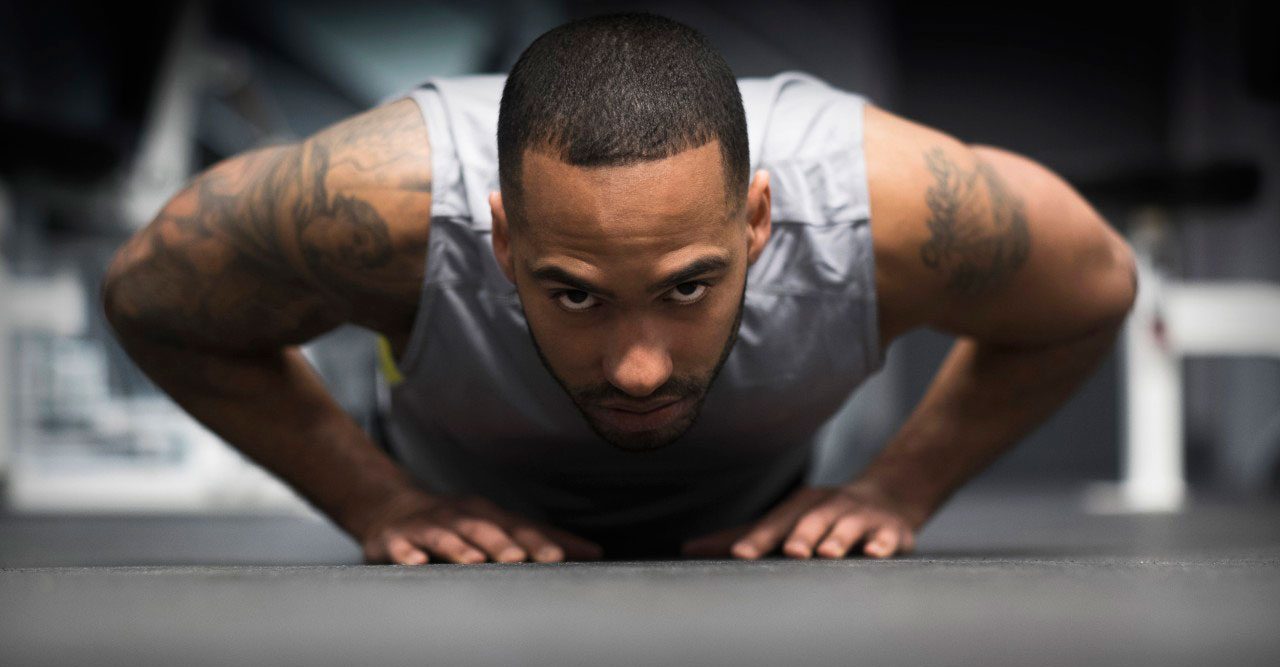What Happens in Your Body When You Work Out?

Aerobics will make you stronger and happier.
For most of us, the first moment of aerobic exercise feels tough: your heart speeds up, you breathe slowly and you might stiffen. Your body responds to exercise with a series of changes to make you stronger. We developed these survival responses back when we watched the sky for buzzards and had to outrun them to reach the juicy meat in a carcass before it was picked clean. Now that steaks are sold at the supermarket, you won’t go hungry because you can’t run. But you’ll be healthier if you keep your body as close to savanna-ready as you can.
YOU MIGHT ALSO LIKE: There’s a Running Program for You
When you’re exercising, let’s say running, some parts of your system shut down while others work harder. Your heart beats faster to pump blood to your muscles. Your digestion slows down. Your body works to increase oxygen flow, and let go of heat and other by-products.
For the most intense movement — throwing a punch, lunging, sprinting — your body will supply all of your cells with several seconds worth of a fuel called “ATP.”
Beyond those first few seconds, your muscles will tap into stores of glycogen, which convert to ATP over a minute and a half. Lactic acid builds up in your muscles, creating an exercise “burn.”
After around two minutes your body responds by increasing your access to oxygen: now you’re getting aerobic exercise. Oxygen helps you turn glycogen into glucose, or draw glucose from your blood or food in your intestines.
To take in more oxygen, your lungs work more quickly. The fitter you are, the more oxygen you’ll get. To move the oxygen through your body, your heart rate increases along with your blood flow. Your heart is a muscle that gets bigger and more efficient with training. Top athletes can pump more than twice as much oxygen-rich blood per heartbeat than the average adult. So their hearts don’t need to pump as hard for the same amount of exercise and, at rest, may beat as little as 40 times per minute, compared to the average of 60 to 80.
As you work out, heat builds inside your body. Your blood vessels dilate to bring heat towards the skin and release it into the air, making your skin feel warm. Your face might turn red as well. Tiny tears occur in your muscles, making you sore. As the tears heal you get stronger.
The whole experience is good for your brain, which responds by releasing feel-good chemicals. You’ll feel more alert and focused.
Aerobic exercise is a goldmine of health benefits. It helps pull you out of bad moods and fight mild depression; maintain a normal weight and avoid the many risks associated with obesity; prevent heart disease by cutting blood pressure and making your blood vessels less likely to get clogged with fat; and keep your body responsive to insulin — staving off diabetes, a condition in which you need extra insulin to maintain the right blood sugar levels. Exercise also helps prevent dementia and slow down milder mental decline with age.
How much do you need? The general consensus is at least 150 minutes a week of some kind of “moderate” exercise; exercise is “moderate” if you need to breathe faster. In a large 14-year study, drawing on data from mainly middle-aged adults, people who exercised that much had 31 percent less risk of dying over that time than those who didn’t exercise at all. People who did more — generally walking quickly a bit more than an hour a day — had 39 percent less risk of death during the study. Other research suggests that including a half hour of vigorous exercise in your weekly routine boosts your chances of staying alive even more.
Updated:
April 08, 2020
Reviewed By:
Janet O’Dell, RN